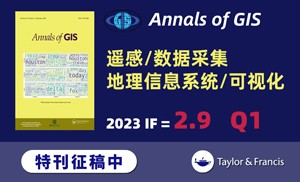当前位置:
X-MOL 学术
›
Family Court Review
›
论文详情
Our official English website, www.x-mol.net, welcomes your
feedback! (Note: you will need to create a separate account there.)
Perceived and Actual Knowledge Gain among Juvenile Drug Treatment Court Team Members: A Pre-Post Analysis of On-Site Training and Technical Assistance
Family Court Review ( IF 0.7 ) Pub Date : 2021-09-16 , DOI: 10.1111/fcre.12545 Jasmine Victoria Idrogo , Logan A. Yelderman 1 , Martha-Elin Blomquist , Angela D. Broadus
Family Court Review ( IF 0.7 ) Pub Date : 2021-09-16 , DOI: 10.1111/fcre.12545 Jasmine Victoria Idrogo , Logan A. Yelderman 1 , Martha-Elin Blomquist , Angela D. Broadus
Affiliation
Juvenile drug treatment courts (JDTCs), in large part, are a product of the therapeutic jurisprudence movement. When they were established in 1993 in the U.S., JDTCs were initially modeled after adult drug treatment courts but insufficiently addressed unique characteristics of adolescence. In 2003, recommended practices, known as the 16 Strategies, for JDTCs working with adolescent offenders with substance use disorders were introduced to the field by the National Drug Court Institute (NDCI) and the National Council of Juvenile and Family Court Judges (NCJFCJ). Recently, the Office of Juvenile Justice and Delinquency Prevention (OJJDP) and the American Institute of Research (AIR), proposed a set of evidence-based, recommended practices outlined in the Juvenile Drug Treatment Court Guidelines (JDTC Guideline). However, little research examines the effectiveness of training and technical assistance on recommended, evidence-based practices for JDTC teams. The current study uses a pre/post-training survey design to examine perceived and actual knowledge gain of JDTC practitioners who receive targeted training and technical assistance on recommended practices for JDTCs. The data demonstrate significantly higher perceived knowledge gain, post-training, on the topics of recommended practice (as outlined in the 16 Strategies and JDTC Guidelines). Implications are discussed.
中文翻译:

青少年戒毒法庭团队成员的感知和实际知识获取:现场培训和技术援助的事前分析
青少年药物治疗法庭 (JDTC) 在很大程度上是治疗法学运动的产物。1993 年在美国成立时,JDTC 最初是模仿成人药物治疗法庭的模型,但没有充分解决青春期的独特特征。2003 年,国家毒品法庭研究所 (NDCI) 和国家少年和家庭法院法官委员会 (NCJFCJ) 向该领域引入了建议做法,即所谓的16 条策略,供 JDTC 与患有物质使用障碍的青少年罪犯合作。最近,少年司法和犯罪预防办公室 (OJJDP) 和美国研究所 (AIR) 提出了一系列基于证据的推荐做法,这些做法在少年药物治疗法庭指南中概述(JDTC 指南)。然而,很少有研究检查对 JDTC 团队推荐的、基于证据的实践的培训和技术援助的有效性。当前的研究使用培训前/培训后调查设计来检查 JDTC 从业者的感知和实际知识获取,这些从业者接受了有关 JDTC 推荐做法的有针对性的培训和技术援助。数据表明,在培训后,关于推荐实践主题(如16 项策略和JDTC 指南中所述)的感知知识增益明显更高。影响进行了讨论。
更新日期:2021-10-19
中文翻译:

青少年戒毒法庭团队成员的感知和实际知识获取:现场培训和技术援助的事前分析
青少年药物治疗法庭 (JDTC) 在很大程度上是治疗法学运动的产物。1993 年在美国成立时,JDTC 最初是模仿成人药物治疗法庭的模型,但没有充分解决青春期的独特特征。2003 年,国家毒品法庭研究所 (NDCI) 和国家少年和家庭法院法官委员会 (NCJFCJ) 向该领域引入了建议做法,即所谓的16 条策略,供 JDTC 与患有物质使用障碍的青少年罪犯合作。最近,少年司法和犯罪预防办公室 (OJJDP) 和美国研究所 (AIR) 提出了一系列基于证据的推荐做法,这些做法在少年药物治疗法庭指南中概述(JDTC 指南)。然而,很少有研究检查对 JDTC 团队推荐的、基于证据的实践的培训和技术援助的有效性。当前的研究使用培训前/培训后调查设计来检查 JDTC 从业者的感知和实际知识获取,这些从业者接受了有关 JDTC 推荐做法的有针对性的培训和技术援助。数据表明,在培训后,关于推荐实践主题(如16 项策略和JDTC 指南中所述)的感知知识增益明显更高。影响进行了讨论。









































 京公网安备 11010802027423号
京公网安备 11010802027423号